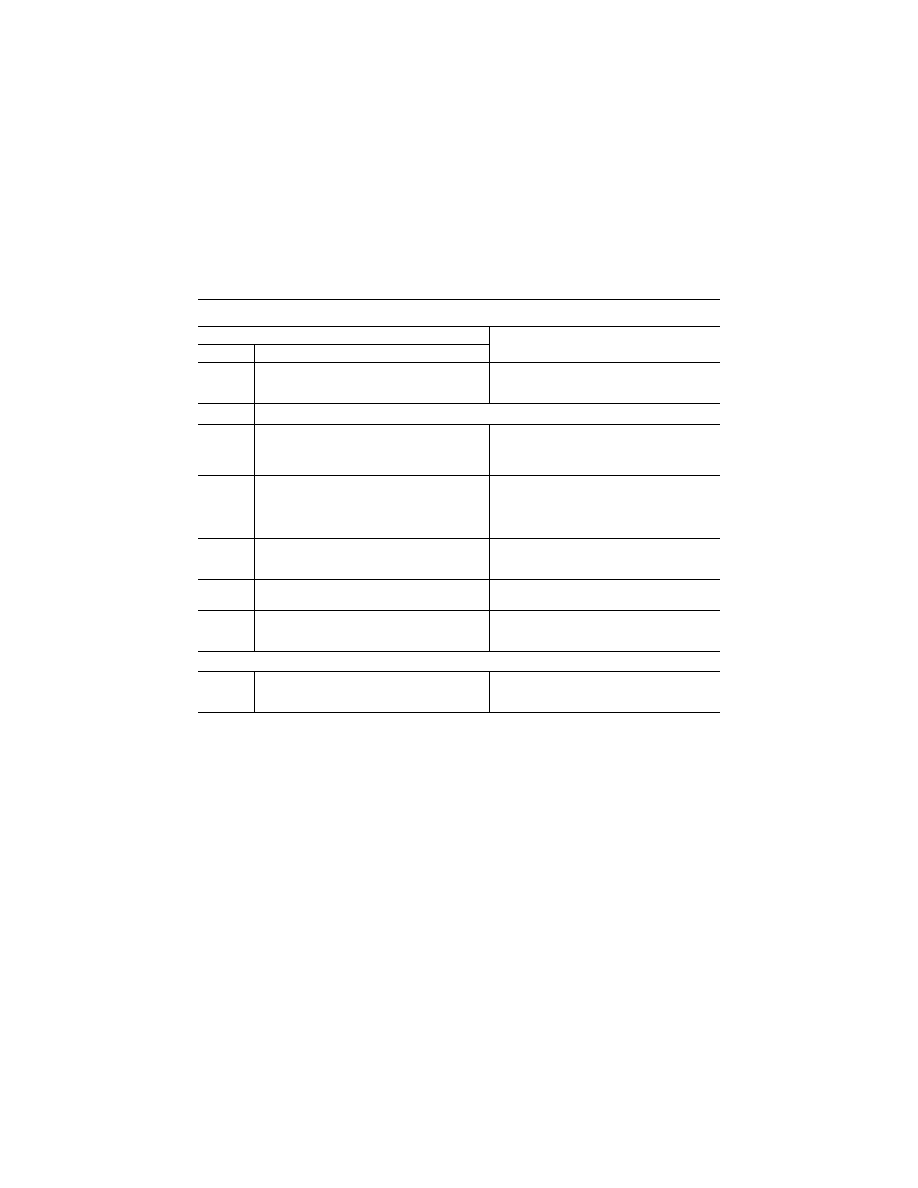
173
Federal Aviation Administration, DOT
Pt. 60, App. B
T
ABLE
B2E—A
LTERNATIVE
D
ATA
S
OURCE FOR
FTD L
EVEL
5 M
ULTI
-E
NGINE
(T
URBO
-P
ROPELLER
)
A
IRPLANE
—Continued
QPS Requirement
The performance parameters in this table must be used to program the FTD if flight test data is not used to program the FTD.
Applicable test
Authorized performance range
Entry No.
Title and procedure
2.c.8.b. .......
Phugoid dynamics ...........................................................
Must have a phugoid with a period of 30–60 seconds.
May not reach
1
⁄
2
or double amplitude in less than 2
cycles.
2.d. .............
Lateral Directional Tests
2.d.2. ..........
Roll response ..................................................................
Roll rate must be measured through at least 30
°
of roll.
Aileron control must be deflected
1
⁄
3
(33.3 percent) of
maximum travel.
Must have a roll rate of 4–25 degrees/second.
2.d.4.b. .......
Spiral stability ..................................................................
Cruise configuration and normal cruise airspeed. Estab-
lish a 20
°
–30
°
bank. When stabilized, neutralize the
aileron control and release. Must be completed in
both directions of turn.
Initial bank angle (
±
5
°
) after 20 seconds.
2.d.6.b. .......
Rudder response .............................................................
Use 25 percent of maximum rudder deflection. (Appli-
cable to approach or landing configuration.)
3
°
–6
°
/second yaw rate.
2.d.7. ..........
Dutch roll, yaw damper off ..............................................
(Applicable to cruise and approach configurations.)
A period of 2–5 seconds; and
1
⁄
2
–2 cycles.
2.d.8. ..........
Steady state sideslip .......................................................
Use 50 percent rudder deflection. (Applicable to ap-
proach and landing configurations.)
2
°
–10
°
of bank;
4
°
–10
°
of sideslip; and
2
°
–10
°
of aileron.
6. FTD System Response Time
6.a. .............
Flight deck instrument systems response to an abrupt
pilot controller input. One test is required in each axis
(pitch, roll, yaw).
300 milliseconds or less.
E
ND
QPS R
EQUIREMENTS
lllllllllllllllllllllll
B
EGIN
QPS R
EQUIREMENTS
5. A
LTERNATIVE
D
ATA
S
OURCES
, P
ROCEDURES
,
AND
I
NSTRUMENTATION
: L
EVEL
6 FTD O
NLY
a. Sponsors are not required to use the al-
ternative data sources, procedures, and in-
strumentation. However, a sponsor may
choose to use one or more of the alternative
sources, procedures, and instrumentation de-
scribed in Table B2F.
E
ND
QPS R
EQUIREMENTS
lllllllllllllllllllllll
B
EGIN
I
NFORMATION
b. It has become standard practice for ex-
perienced FTD manufacturers to use such
techniques as a means of establishing data
bases for new FTD configurations while
awaiting the availability of actual flight test
data; and then comparing this new data with
the newly available flight test data. The re-
sults of such comparisons have, as reported
by some recognized and experienced simula-
tion experts, become increasingly consistent
and indicate that these techniques, applied
with appropriate experience, are becoming
dependably accurate for the development of
aerodynamic models for use in Level 6 FTDs.
c. In reviewing this history, the NSPM has
concluded that, with proper care, those who
are experienced in the development of aero-
dynamic models for FTD application can
successfully use these modeling techniques
to acceptably alter the method by which
flight test data may be acquired and, when
applied to Level 6 FTDs, does not com-
promise the quality of that simulation.
d. The information in the table that fol-
lows (Table of Alternative Data Sources,
Procedures, and Information: Level 6 FTD
Only) is presented to describe an acceptable
alternative to data sources for Level 6 FTD
modeling and validation, and an acceptable
alternative to the procedures and instrumen-
tation found in the flight test methods tradi-
tionally accepted for gathering modeling and
validation data.
VerDate Mar<15>2010
20:48 Jan 30, 2014
Jkt 232047
PO 00000
Frm 00183
Fmt 8010
Sfmt 8002
Q:\14\14V2.TXT
ofr150
PsN: PC150